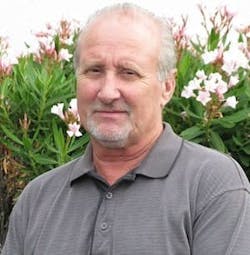About the Ban
About the author: Mike Mecca is director of technical services and product development for Performance Water and past president of the Pacific Water Quality Assn. Mecca can be reached at [email protected] or 714.736.0137. Nicole Bowling is assistant editor for Water Quality Products. Bowling can be reached at [email protected].
It has been almost three years since California passed Assembly Bill 1366, allowing municipalities to ban the sale and use of water softeners. Water Quality Products Assistant Editor Nicole Bowling spoke with Mike Mecca, past president of the Pacific Water Quality Assn. (PWQA), about how the bans are affecting the local water quality industry.
Nicole Bowling: What is the status of the water softener ban legislation in California?
Mike Mecca: [The] Inland Empire Utilities Agency (IEUA) passed a [softener ban] ordinance that is a kind of framework — it pretty much tells its member agencies to do it a certain way or there might be consequences. IEUA is the sanitation and sewer provider for cities in San Bernardino County, and while some of them do not like the law, when IEUA suggests something, the cities have to really take it seriously.
One of the city managers we spoke to said that those of us in the water quality industry have to work with IEUA because it does not want to have to take this to its city council and impose the ban on its citizens. While we tried to do that at WQA [Water Quality Assn.] and PWQA, this ban was something that had been coming for 10 years from IEUA. The organization had done its homework.
Bowling : What ar e the potential negative consequences of banning water softeners?
Mecca: The ban is only in effect for new installations. Although, if you pass a ban, you are prohibiting the most effective and newest technology the industry offers today or could offer in the near future. For the short term, in 10 to 20 years, cities could actually make the water quality problem worse by implementing a ban because they are preventing people from buying or installing one of the new ultra-efficient pieces of equipment. If you have a softener, what we affectionately call “old salt hogs,” you have to keep it going, and they get more and more inefficient over time.
Bowling: Is there an alternative solution to a water softener ban?
Mecca: An alternative solution would be a softener ordinance. You could embrace some of the new technologies specifically in the ordinance, whether it is twin-tank units, which are inherently more efficient, or sensor-based equipment. You could mandate in your ordinance higher efficiencies overall.
There are some cities now that are starting to draft their softener ordinances, and we are working with a few of them. They are testing some of the ultra-high-efficiency equipment themselves to see how it works. They are being extremely cooperative and have no intention of implementing the ban.
Bowling: How has this ban affected the local water quality industry?
Mecca: I have the perfect example to answer this question. I was in a business meeting with my company, which is involved in one of the EDI [electrodeionization] salt-free systems, and we were discussing what opportunities were available for true salt-free conditioning systems in [the city of] Santa Clarita. Santa Clarita was perfect for the true salt-free systems because traditional softeners are banned and illegal to even own.
We were trying to figure out who was still left in that town that would be able to understand the salt-free technology, sell the equipment and service it long term. And for the life of us, there are no independents left. So the ordinance did exactly what it set out to do—it destroyed what little water treatment industry there was and all independents were driven out of business.
Bowling: What do you see for the future of this legislation?
Mecca: Santa Clarita was a wake-up call for the sanitation district because it [tried to do] one thing and another happened. As an industry, we were saying, “This is not what is going to happen,” but they said, “We are going to do this, and we are going do that.” The senator of that district even wrote a letter to the editor and called the legislation a “bait and switch” because the city came to him with a whole set of proposals and numbers — “this is what we can do if we completely ban softeners” — [that later] did not even come close.
A couple of cities we are working with are taking a logical approach. They understand that there is better equipment coming out, so it will take care of itself as time goes on. I do not see any draconian measures on the horizon for bans or all-out removals. What they have done did not work or caused more problems than what they foresaw. The industry has done a great job — we just have to drag it down the channels [to] the dealers and the customers, to only use the highest-efficiency equipment out there. Then the problem would take care of itself.
Download: Here
